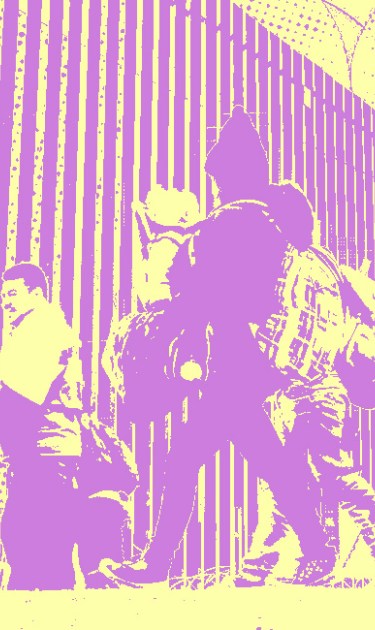It’s a frightening time for immigrants. Although previous presidents have deported immigrants in large numbers, many – especially those without criminal records – felt a relative sense of normalcy. But with an administration that is outwardly hostile toward immigrant populations, any comfort previously felt is gone. As Donald Trump attempts to tighten immigration laws and cut down on even legal forms of migration into the United States, it can be difficult to keep up with the changing landscape.
That’s why we have launched the Ask an Immigration Lawyer column. Twice a month, Nubia Willman – a Chicago-based immigration attorney with nearly decade of experience – answers your questions about Deferred Action for Childhood Arrivals (DACA), Temporary Protected Status (TPS), and more. This column is not meant to be construed as legal advice. You should not act upon any information provided without seeking the advice of an attorney licensed to practice law in your state.
Submit a question here and check out previous columns here.
Dear Nubia: I’m really disheartened by all the deaths of child migrants that have happened in the past few months. What are some organizations that we should support to help undocumented immigrants at the border?

–Hoping to Help
Dear Hoping: Thank you for this question. It is so overwhelming to hear about the deaths, abuse, and mistreatment at the border and detention centers and not know how to help. You almost hope it’s all exaggerated because surely we can’t be treating people this badly, right?
Unfortunately, it is that bad. People working at the border are bearing witness to the human rights violations that are occurring and reporting just how inhumane it is. More than 900 immigrants seeking safety in our country are stuffed in a center meant to hold only 125. The administration cut funding for legal services and education for children in detention. Families have still not been reunited. And there have been more than 20 deaths in Immigration and Custom Enforcement (ICE) detention centers during this administration. It is brutal and, in my opinion, there is little denying that this inhumane treatment is part of this administration’s goal to stop the flow of brown immigrants into the US.

Reading all of this may make one feel hopeless, but there are lots of ways to provide support to those that need it. There are people on the ground and agencies fighting for those detained, who are working to stop further harm perpetuated by this administration. Agencies like Al Otro Lado, which is working at the border and providing as much legal representation as it can to asylees (full disclosure: I interned for its legal director many years ago). No More Deaths is an amazing Arizona-based agency that provides humanitarian relief to migrants crossing the Arizona desert. You may have heard of this organization as one of its volunteers recently faced federal charges for providing life-saving water to immigrants. The ACLU and other policy-focused agencies sue the federal government to address legal violations and successfully sued to stop the family separations at the border.
Finally, one of the most impactful things you can do is locate the immigration nonprofits in your area that provide free or low-cost services to immigrants and support them. Often, when someone detained is released into the US, they still face a long legal journey ahead of them to prove they should be granted some form of relief (usually asylum). In immigration, unlike criminal law, no one is guaranteed a free attorney, having access to a free or low-cost immigration attorney can be the difference in whether or not they get to stay in the US. If you want to start local, I encourage you to find nearby agencies and see what type of support they need .
–Nubia

Disclaimer: The information on this column is not legal advice. Legal information is not the same as legal advice, which is the application of law to an individual’s specific circumstances. The information provided in this column is not a substitute for and does not replace the advice or representation of a licensed attorney. Although Remezcla goes to great lengths to make sure the information on the column is accurate and up to date, we make no claim as to the accuracy of this information and are not responsible for any consequences that may result from the use of this column.
We recommend that you consult with a licensed attorney if you want assurance that the information on the Remezcla and your interpretation of it are appropriate for your particular situation. You should not and are not authorized to rely on this column as a source of legal advice. The use of this column does not create an attorney-client relationship between Remezcla, its agents, and any user.




